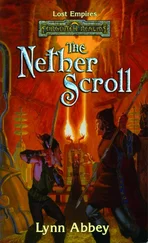Picking up the box with the charm that had bound Shigeru to her and turned his wife against him, she went to the shrine and prayed for forgiveness, for them all to be released. She wept for her dead love, and the tears brought clarity. I did not mean to love you, she told him, but I did, completely. Now you are gone, I will not live without you. Forgive me for the part I played in your death. The salt of tears mingled in her mouth with the taste of blood.
Clasping the box to her like a child, she climbed to the edge of the sulfur-smelling crater and threw herself into the pit.
Kenji accompanied Shigeru to the south bank of the river. They arrived at the night ebb tide, when the air smelled of mud and salt. A new three-day moon hung low above the sea. Shigeru was a little reluctant to say good-bye; he would have liked to keep his companion longer. He felt there was indeed some inexplicable bond between them and suspected that he would be in need of help in the coming months, the sort of help only the Tribe could provide-above all, information.
“Where will you go now? You are welcome to stay at my mother’s house.”
“It’s better for our friendship to remain hidden for now,” Kenji replied. “There are places I can stay in Hagi.”
“Where can I reach you?” Shigeru asked.
“I’ll send someone to you. I’ll be in touch in some way through your household.”
Shigeru thought immediately of Muto Shizuka and was filled with misgivings-even if he had information from Kenji, how would he know if he could trust it? How could he control and use the Tribe when he knew nothing about them?
“Well, thank you again-for the sword, for all your help.”
“Lord Otori.” Kenji bowed formally. “Look after yourself,” he added in more familiar speech and turned to walk away.
Shigeru gazed after him for a moment and saw the figure split in two. Two identical men walked side by side. Both raised a hand in farewell. They merged together, and Kenji, the Fox, vanished.
He is showing off, Shigeru thought, but what a marvelous skill to have.
SHIGERU WENT FIRST to his mother’s house, crossing the river by the fish weir, remembering, as always, the day of the stone fight when Takeshi nearly drowned, and Mori Yuta did. Now the second Mori son was dead too.
He did not want to return to the castle like a fugitive. In the morning he would dress in formal robes and ride there as the head of the clan.
The dogs barked triumphantly; the guards opened the gate at the sound of his voice, their faces astonished, then contorted with emotion. Two of them, ancient grizzled men too old to fight on the battlefield, had tears coursing down their cheeks as they fell to their knees.
The household woke; lamps were lit. Chiyo wept as she prepared hot water and food. Ichiro forgot himself so far that he embraced his former pupil. Shigeru had returned from the dead, and no one could quite believe it.
Messengers were sent at once to the castle, and Shigeru’s mother arrived at dawn. He had bathed and slept for a few hours and was eating the first meal of the day with Ichiro when her presence was announced.
“You have come back just in time,” she said. “Kitano is expected any day now with Iida’s terms. Your uncles are installed as regents, but you can be sure they will not be as overjoyed as they should be at your return.”
“I will go to the castle at once,” Shigeru said. “You must accompany me.” After a moment he went on. “My father died fighting bravely, as did all his warriors. We were defeated by the treachery of the Noguchi. But Kitano is not blameless; his vacillation also contributed to the defeat.”
“This, however, makes him acceptable to Iida,” Ichiro observed. The older man’s emotion had not affected his appetite, Shigeru noticed, as Ichiro helped himself greedily to rice and salted plums. Yet he felt renewed respect for his teacher’s learning and judgment, recalling his meticulous attention to detail and his scrupulous regard for truth. Moreover, Shigeru knew that he could trust him completely.
“You must refuse to negotiate through a traitor,” his mother said angrily. “You must confront your uncles and take over the leadership of the clan immediately.”
“Forgive me for disagreeing, Lady Otori,” Ichiro said, “but Lord Shigeru should be prepared to be flexible: it’s not the willow’s branches that break under the snow. The Otori have been defeated in battle; no matter whose the fault, the outcome is the same. Iida is going to make heavy demands, heavier than the worst blizzards of winter. If we are not to be broken completely, we must be prepared to bend.”
Lady Otori, affronted, opened her mouth to argue, but Shigeru held up a hand to silence her.
“What are these demands likely to be?”
“We must find out from Kitano. I am afraid he will ask for Chigawa, the silver mines, all of the eastern districts, and maybe even Yamagata.”
“We will never give up Yamagata,” Lady Otori exclaimed.
“And though I dislike having to voice such things, your abdication, even your life, may be required.” Ichiro spoke in a dry, impersonal manner, as though discussing a point of legality, but a sudden fit of coughing seemed to overcome him, and he wiped his eyes with the sleeve of his robe, hiding his face briefly.
Lady Otori did not argue with this interpretation but sat in silence, her eyes cast down, her face stern.
Shigeru said, “My father’s command to me was that I should take my own life only if Jato were lost. Jato came to me, as if by a miracle. Therefore, I must obey my father’s wishes and live in order to seek revenge.”
“The sword came to you?” His mother was shocked into speech. “Where is it?”
He indicated where it lay beside him-the hilt disguised, the scabbard borrowed.
“That is not Jato,” she said.
“I will not draw it to prove it to you. But it is Jato.”
His mother smiled. “Then we have nothing to fear. They cannot make you abdicate if you hold the Otori sword.”
Ichiro said, “Iida Sadamu, it is reported, hates you personally. Your uncles may be tempted to deliver you to him for their own gain. The Otori army has been almost annihilated. We are in no position to defend ourselves. You will be in great danger. You must go very carefully.”
“Do I hold any advantages?” Shigeru asked.
“You are the legal heir to the clan; the people love you and will not give up their support of you quickly.”
“And the Tohan also suffered huge losses,” Shigeru said. “Sadamu himself may not be able to attack the heart of the Middle Country or lay siege to Hagi. And maybe the Seishuu will stand by their pledges of alliance and come to our support.” And maybe the Tribe will be another check on Sadamu’s ambition, he reflected but did not speak of this.
“Well, that’s better than I thought,” Ichiro said.
SHIGERU GAVE ORDERS for the most stately procession possible under the circumstances to escort him to the castle. Old men and boys were rapidly assembled from the remnants of the household guards. Somewhat to his surprise, Miyoshi Kahei and his younger brother, Gemba, appeared among them; Gemba was only six years old.
“I am happy to see you alive,” Shigeru said to Kahei.
“Not as happy as we are to see Lord Shigeru,” the lad replied, his former boyishness and cheerfulness extinguished by what he had seen of war. “Kiyoshige’s death was terrible,” he added quietly, his eyes bright with unshed tears. “It must be avenged.”
“It will be,” Shigeru replied as quietly. “What news of your father?”
“He also lived. He is at the castle now. He sent my brother and me to be part of your escort, a pledge of his support in the coming months: many of our men died, but they have sons, the same age as me or Gemba; we will be your future army.”
Читать дальше












